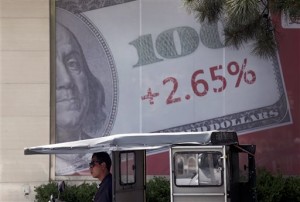The Toyota Group of export suppliers exports of automotive parts fell by about 6 percent to $220.68 million in the first three months of 2015, from the $234.11 million recorded a year ago.
The decline in the outbound shipments from TMP’s facility in Laguna was due largely to the reduction in the volume of orders made by car manufacturers in Thailand and Japan, which rolled out new models that no longer needed certain vehicle parts made in the Philippines, TMP vice president Rommel Gutierrez said in a text message Wednesday.
Despite the decline, Gutierrez said, the company still expects exports to reach $885 million—the same as that of last year.
The Toyota Group is composed of 13 parts export suppliers, performing strategic roles in the manufacture and exports of automotive products to the Asean, Japan, and other parts of the world.
A group of local automotive parts makers earlier urged the government to undertake the necessary measures that would provide them an “advantage” over imported car parts, and enable them to become more competitive compared to their counterparts in the region.
Egmidio S. Jose, chair of the Motor Vehicle Parts Manufacturers Association of the Philippines (MVPMAP), earlier said that the group was not just after incentives, but other forms of assistance from the government that could include lower registration fees and cheaper interest rates.
Also necessary were testing facilities that would ensure the quality and safety of local parts, especially since automotive companies globally are highly stringent in their qualifications. Local auto parts makers cannot afford these facilities, which are often expensive, especially at current conditions. It would help as well if the Philippine government could match the incentives being given by other neighboring countries to local car and car parts manufacturers, the group said, explaining that the move would at least level the playing field for industry players.
These, according to Jose, are some of the measures that can be undertaken by the government if it hopes to ensure the growth of the sector.
From a high of over 150 Philippine parts companies in the 1990s, the sector has since reported a drop in number to about 50 homegrown firms now catering mostly to the domestic market.


